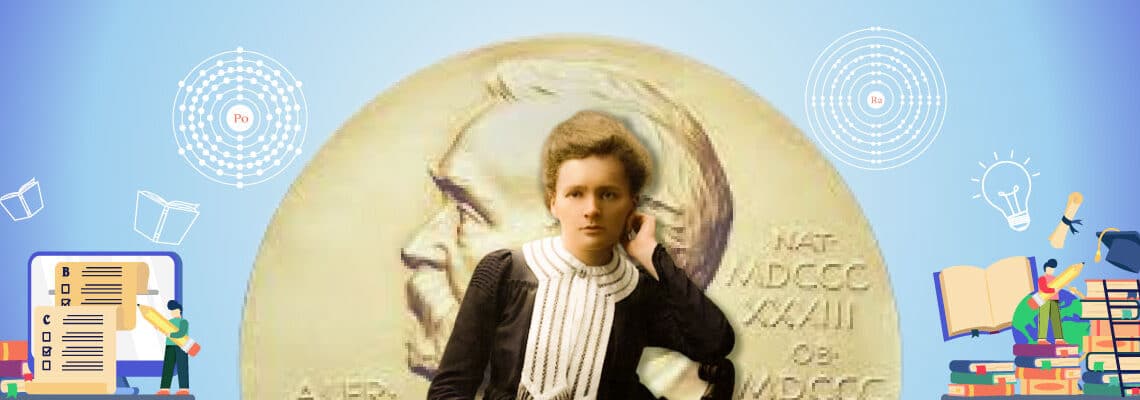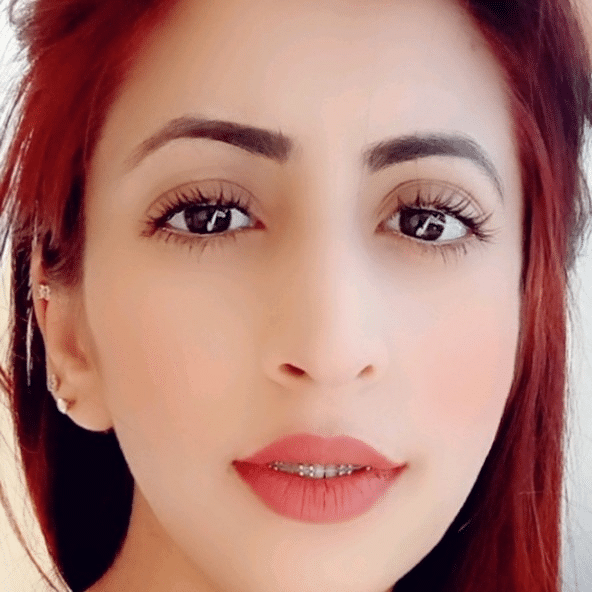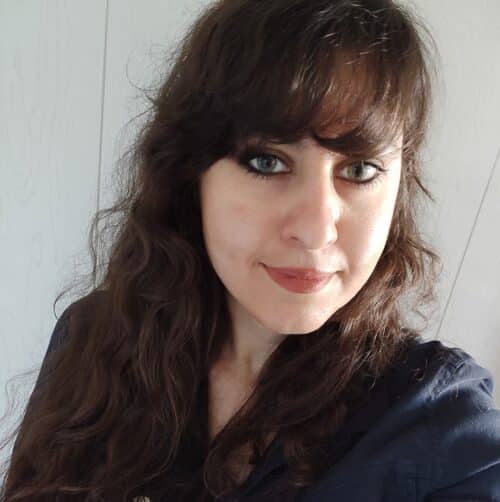
Marie Curie PhD Scholarship is one of the most prestigious fully funded scholarships for international students in Europe. It goes to talented PhD applicants around the world. A research support group initiated by the European Union (EU), i.e., Marie Skłodowska-Curie Actions (MSCA), offers the Marie Curie PhD Scholarship. The support provides well-remunerated scholarship opportunities in leading, top European research facilities. It also offers excellent exposure to working in both academia and industry. Please be aware that applicants must contact research supervisors at some point to discuss a potential research project they should perform at a European university.
Eligibility and Requirements
Researchers funded by the Marie Curie PhD Scholarship can be of any nationality and background and should:
- not hold a doctoral degree at the date of their recruitment.
- be enrolled in a doctoral program during their research project.
- spend at least 50% of their time outside academia, for Industrial Doctorates.
- comply with the mobility rules: in general, they must not have resided or carried out their main activity (work, studies, etc.) in the country of the recruiting organization for more than 12 months in the 36 months immediately before their recruitment date.
Marie Curie PhD Stipend
The Marie Curie PhD stipend varies from country to country, but as a rule of thumb, it ranges from 3,000 to 5,000 Euros monthly. It consists of three parts (i) living allowance, (ii) mobility allowance, and (iii) family allowance. The first two parts go to every Marie Curie PhD Scholarship winner, but the third goes to those with accompanying families. PhD positions are the most popular higher education vacancies, as the chance of getting financial support for them is high.
This article shares real stories of some applicants’ journeys throughout the Marie Curie PhD Scholarship application process from the beginning until they won the scholarship.
1) Mohadeseh Bagherabadi, Winner of the Marie Curie PhD Scholarship 2021
My name is Mohadeseh Bagherabadi, a PhD student at the Technical University of Darmstadt (TU Darmstadt). I am also a member of the STIMULUS group, and my thesis is on the multifunctional wound dressing area. I am happy to walk you through my experience in the application process for the Marie Curie PhD Scholarship, hoping that you find my story useful and helpful. My interest in chemistry dates back to high school when my chemistry teacher appointed me as his laboratory assistant. Meanwhile, taking part in a chemistry Olympiad was another motivation for me. I received my master’s degree in polymer chemistry as a top first-ranked student in 2020.
After finishing my master’s degree, I began to search for overseas PhD positions with great motivation. I was seeking PhD positions on websites like EURAXESS and FindAPhD. Simultaneously, I contacted professors whose expertise was smart polymers, i.e., my primary research interest. After a while, my motivation for applying to PhD positions started fading due to receiving disappointing emails from supervisors, the unsuccessful experience of my classmates/friends in their application process, and the Corona pandemic. My friends with CVs much stronger than mine couldn’t receive any funded PhD position. How can I? Moreover, as a working single mom, I did not have enough time and money to efficiently plan for taking an English proficiency test (IELTS, TOEFL, PTE, etc.).
Acquaintance with the Marie Curie PhD Scholarship
However, sometimes a person has no other choice than success and must fight to achieve it. I began to prepare my academic CV and search for someone to revise it for me. While I could not find anyone, you can trust Applyindex to write your CV. A light came from nowhere when I heard that MSCA considers female researchers a priority for getting the Marie Curie PhD Scholarship. I started writing a cover letter describing my motivations, goals, and life challenges. In particular, I wrote about the difficulties of continuing my academic journey with a 10-year-old child. Ultimately, I applied for the scholarship with 15 research positions in various fields of wound infection treatment.
Those 15 PhD students should collaborate at several universities in different countries of the EU, such as BOKU, the University of Bath, KOÇ University, etc. Although I could nominate a maximum of two positions, I only chose a position at TU Darmstadt in Germany that aligns best with my research interests. The employment of smart polymers in health-related applications is my principal research interest. After sending my documents and resume to my current supervisor, Prof. Dr. Annette Brunsen, my motivation to continue my academic journey increased in the last step.
Journey to a 2-hour interview of Marie Curie PhD
(i) From disappointment to an interview invitation
If I am not wrong, I applied for this Marie Curie PhD Scholarship in November 2020. I was not receiving any feedback for a while. Therefore, I started applying for other funding opportunities. There were 160 positions that I applied for back then. It was the peak of the Corona pandemic, and they were not hiring new students due to the lockdowns everywhere. Everyone kept saying that the situation would remain the same until it was practically impossible to get a funded position at the end of the pandemic. It is always true that the darkest night will end, and the sun will rise. In mid-February 2021 I received an email, inviting me to an interview on March 25, 2021.
(ii) Stresses before Marie Curie PhD Scholarship interview
My Marie Curie PhD Scholarship interview was the first interview I experienced. I needed to prepare a 20-minute presentation outlining my research background, skills, and life goals. Since it was during the last days of the solar calendar, i.e., the busiest days in Iran, I could not take any time off to prepare for the interview. All the work was overdue, and I had to finish it before the Persian New Year, Nowruz. However, a powerful feeling in my heart said that I would attend the interview in the best possible way. I had only 5 days to prepare for the interview. During the talk, I focused on Dr. Brunsen’s group’s alignment with my research experience and lab skills.
Since I used to live in the countryside in Iran, I had a weak internet connection. So, I had to go to my friend’s home for the interview. On the way, I was periodically thinking about the following:
- I should not disappoint my mother as my biggest supporter.
- I must do something for my son’s future.
- What if this is the first and last chance of my life?
(iii) What happened during the interview
The Marie Curie PhD Scholarship interview, which was initially supposed to be 45 minutes, took 2 hours. I tried my best to answer their questions properly. I talked about what motivated me to step into this pathway. Five professors participated in the interview and each of them asked different types of questions. After the interview, I felt strangely tired and received an email that they would let me know the result within two weeks as they were going to interview other candidates. I used to check my e-mail inbox several times per day. Even if they reject my application, I will try again somewhere else to finally reach my goal. I kept repeating this sentence to myself.
My application outcome
It was early morning on the 1st of April 2021, a day before Nature Day (Sizdah Be-dar in Farsi) in Iran, and I was getting ready to go for a picnic with my family. My son was sleeping next to me. I picked up the phone with my eyes half open and checked my e-mail as usual, when my son suddenly woke up from my scream. My mother walked into the room and asked what had happened. I will never forget that moment! Unexpectedly, I was the first-ranked candidate selected for the Marie Curie PhD Scholarship.
The excitement of that moment is indescribable. I had taken the biggest step in my life, and I could do research away from the stresses of being a woman in Iran. The scholarship pays off all my living expenses plus the family allowances so that I can study with a relieved mind. Away from all financial and gender concerns, I could continue my dream of helping human beings by working on a wound dressing project. I kept repeating these sentences in my mind.
And once again, I believe in this sentence that we should never give up our goals and dreams in life because the impossible is not impossible. My next goal is to win a Marie Curie Postdoc Fellowship. ‘Says Mohadeseh’
2) Khanzadi Nazneen Manzoor, Winner of the Marie Curie PhD Scholarship 2021

I am Khanzadi Nazneen Manzoor, a PhD student at the University of Bath supported by the Marie Curie PhD Scholarship. I am working at the UK Health Security Agency (UKHSA) as an Early-Stage Researcher. I am also a member of the STIMULUS group. My project is focused on imaging, understanding, and attacking multidrug-resistant wound biofilms. This project has received funding from the European Union’s Horizon 2020 research and innovation program. I am happy to speak about and share my experiences on how I ended up winning the Marie Curie PhD Scholarship. I assure you that you will find it an interesting and inspiring story.
Bachelor of Science (BSc)
I had an interest in biology from my school life, and I find it endlessly fascinating because of the numerous prospects. Biology is unique because of the complexity of living organisms. I have always wondered how nature has created such things. Meanwhile, when I was in my bachelor’s studies, I became more interested in microbiology. Because I further learned how it plays a vital role in human life.
I was impressed by how much the unseen organisms are responsible for the complexities of life. That inspired me to step into a pathway to contribute to solving problems and improving our quality. My passion for becoming an independent woman motivated me to work hard in my field. Such a motive led me to win an HEC scholarship for the entire 4 years of my BSc degree. Eventually, I won the gold medal award for being a top first-ranked student, class of 2017.
Master of Science (MSc) and COVID-19
Upon completing my BSc in microbiology, I received the Pakistan Scottish Scholarship Scheme for Women 2018 to pursue my studies, which helped me do my MSc in Microbiology and Immunology. During the last semester of my MSc degree, I began to search for PhD positions. I used different platforms to search for overseas PhD positions like LinkedIn, EURAXESS, and DAAD, as well as university websites.
By writing a research proposal and finding a host professor at Helmholtz Centre for Environmental Research – UFZ, I initially applied for a DAAD PhD Scholarship, and my application was rejected. At one point I was very disappointed by the multiple rejections from the different positions I had applied for. With COVID-19 conditions, the situation worsened and made me unhappy because it was impossible to travel abroad when the entire world was at risk.
I used to ask myself the following questions: What would I do, and how would I pursue my life and career? Would this be the end of everything and all the sacrifices I made in my life to reach that point? How can I find an overseas PhD position to become an independent researcher? I never thought that one day I would win a Marie Curie PhD Scholarship. My master’s professor, Dr. Abid Ali Khan, used to tell me that you should never give up, and one day it will pay off. I had two choices at that time:
(1) one was to quit and become a woman with no ambition. (2) the other was to continue fighting. I chose the second option because gaining the value I deserve in society as a woman was only possible by fighting for my dreams.
My journey to get the Marie Curie PhD Scholarship
Application for Marie Curie PhD Scholarship
While digging for various open PhD positions, I finally got my first interview for a position at Nexbiome Therapeutics. However, they rejected me at the end of a three-step interview process. On the other hand, being interviewed for several positions helped me build up my confidence. I was also writing applications to several professors to apply for DAAD once again by revising my application packages and cover letters over and over for every position.
One day while I was searching on the internet, I found a PhD position covered by the Marie Curie PhD Scholarship matching my research interest and hiring students from all over the world. I immediately prepared my application for that with a cover letter explaining all my obstacles, fights, challenges, values, and goals in my life. I spent a few days applying for that position on the Trac portal, i.e., the online portal system of UKHSA. After a few weeks, I received an email inviting me for an interview on 8th June 2021. The email also asked me to prepare a 10-minute presentation about a project I had recently worked on.
Interview meeting
I prepared myself for the Marie Curie PhD Scholarship interview as best as I could. I presented the project I worked on during my master’s degree. The interview panel asked different questions regarding my project, research experience, and lab skills, as well as some general questions. I was living in a hostel at that time with improper living facilities. I remember that day of the interview, I was sitting inside the room, and it was so hot probably more than 35 °C, and switched off the fan so that there would be no noise.
The internet connection was not too strong, so I borrowed internet from my friend for the interview hour. The interview took a bit longer than one hour, and I tried my best to answer every question properly. After the interview, I did not feel positive about the outcome because of been rejected from a lot of interviews before.
My application outcome
It was the next day while I was applying for more positions. I received an email on 9th June 2021 in the afternoon. I will never forget the moment I read the email, screaming and having tears in my eyes. It was an email from my current line manager (Charlotte Hind) and supervisor (Mark Sutton) offering me the Marie Curie PhD Scholarship. I cannot explain what I felt at that very moment. That was a huge jump my life was going to take. The amount of funding in the position was quite good, and I would be able to live independently while continuing my career as a researcher. My life took a major turn from there. Such a relief!
I am currently on track to gain more experience and knowledge under the supervision of Mark Sutton and Charlotte Hind. The group “Antimicrobial Discovery, Development, and Diagnostics” at UKHSA is my primary workplace. I am working independently with the support of the Marie Curie PhD Scholarship, along with many talented, experienced scientists. My group members are very encouraging and helpful. My supervisors’ guidance and shared experiences are invaluable. While I am halfway through my PhD journey in 2023, I got married on 27th May 2023. Now I have another huge supporter (my husband) who motivates me a lot.
Now I can say this with a firm belief that our hard work pays off eventually. We can learn from life challenges which makes us grow stronger. No one gets the same version of life so learn from your challenges, fight for yourself, and have faith. You will get the reward in the end. ‘Says Khanzadi’
Conclusion
The journey to winning a Marie Curie PhD Scholarship is undeniably challenging, yet deeply rewarding. As the stories of Mohadeseh and Khanzadi reveal, perseverance, clarity of purpose, and strategic preparation play pivotal roles in securing this prestigious opportunity. Applicants must be aware that academic excellence alone is not enough. A strong academic CV and a well-structured motivation letter are essential components of a competitive application. These documents should effectively communicate your research background, skills, motivations, and alignment with the chosen project. Remember: the road may be tough, but for those who prepare thoroughly and never give up, the Marie Curie PhD Scholarship can be a life-changing milestone.
Frequently Asked Questions (FAQs)
What is the Marie Curie PhD Scholarship and who can apply for it?
The Marie Curie PhD Scholarship is a prestigious funding opportunity for PhD candidates. It is open to applicants of any nationality and background, as long as they do not already hold a PhD and are enrolled in a doctoral program during the project. Candidates must also comply with mobility rules, such as not having lived in the host country for more than 12 months in the last 3 years.
What kind of financial support does the Marie Curie PhD Scholarship offer?
The scholarship typically provides a monthly stipend ranging from €3,000 to €5,000, depending on the host country. It includes three components: a living allowance, a mobility allowance, and a family allowance (for candidates with dependents). This funding covers living expenses and supports researchers throughout their PhD journey.
How can applicants increase their chances of winning the Marie Curie PhD Scholarship?
Applicants are encouraged to search and apply through platforms like EURAXESS, contact potential supervisors directly, and tailor their cover letters and CVs to specific positions. Personalizing applications to match research interests and demonstrating resilience and motivation can make a significant difference, as shown in the success stories of past winners like Mohadeseh and Khanzadi.
Do I need to find a supervisor before applying for the Marie Curie PhD Scholarship?
Yes, it is important to find a supervisor and discuss the advertised research project. Many positions require a clear alignment between the applicant’s background and the project’s goals. As illustrated in the article, reaching out to professors whose research matches your interests is a key step in the application process.





14 Comments
venusbeeston59
7 months agoI gotta bookmark this web site it seems handy very helpful.
linneamartinez3
12 months agoI blog quite often and I genuinely thank you for your content. This article has truly peaked my interest. I am going to book mark your website and keep checking for new information about once per week. I subscribed to your RSS feed as well.
debjelks84
1 year agoI love what you guys are up too. This sort of clever work and coverage! Keep up the superb works guys I’ve incorporated you guys to my own blogroll.
pamalagatty
1 year agoHello, everything is going perfectly here and ofcourse every one is sharing information, that’s really excellent, keep up writing.
utaclapp227
1 year agoHey there! Would you mind if I share your blog with my twitter group? There’s a lot of folks that I think would really enjoy your content. Please let me know. Thanks
Amin Reyhani
12 months agofeel free to share it!
millacantwell
1 year agoHaving read this I believed it was very enlightening. I appreciate you taking the time and effort to put this article together. I once again find myself personally spending a significant amount of time both reading and leaving comments. But so what, it was still worthwhile!
Antoni
2 years agoVery inspiring and interesting story. Well-done to Mohadeseh!
admin
2 years agoThank you for your comment. Are you planning to apply for any Marie Curie PhD scholarships? Applyindex can help you.
Amrish
2 years agoVery useful content. Thank you!
admin
2 years agoThank you for your feedback. We hope that you get a Marie Curie PhD scholarship in the near future.
Veronakpw
2 years agoLife
Igorybi
2 years agoUkraine
Aleena Choudhary
2 years agoI want this type of my scholrship Marie curie..please guide me My qualification is Masters in public administration i want to Continue my PHD with scholrship..please i need your support